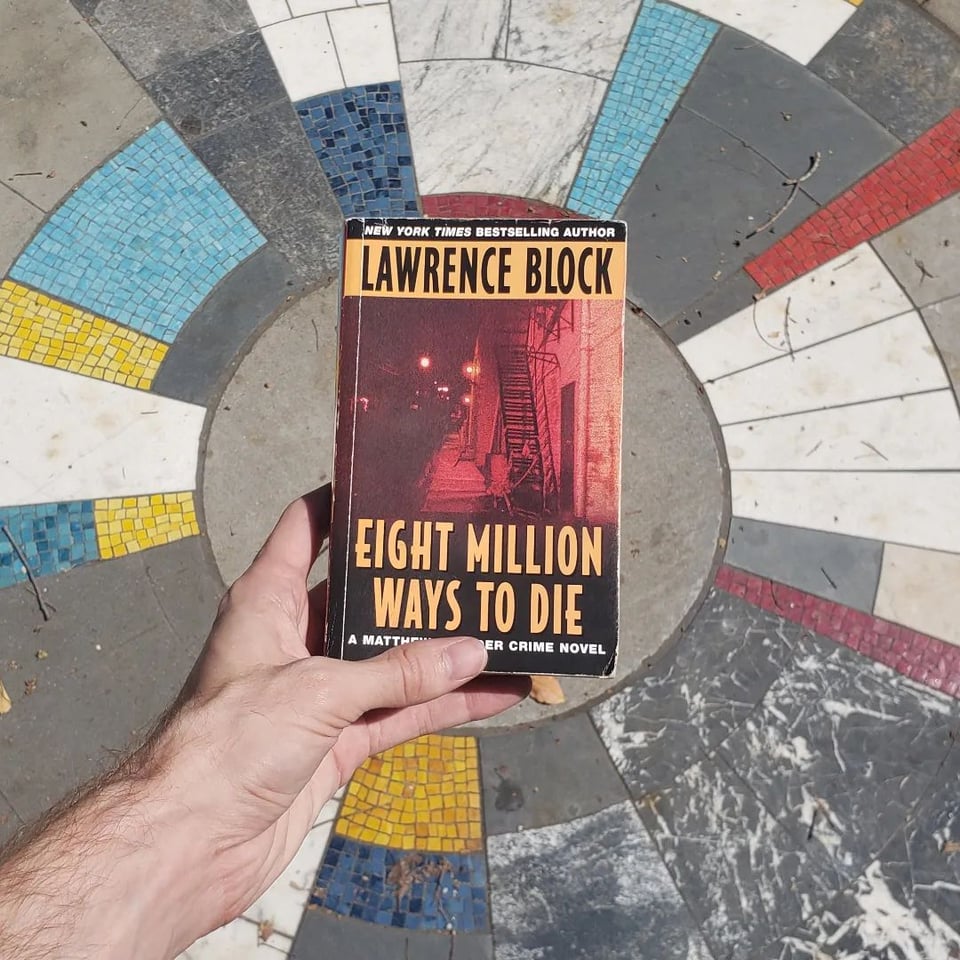Review: Eight Million Ways to Die (1982)

I don’t read many mystery novels. But when I do, it’s almost always twentieth-century noir or hardboiled crime fiction. Frankly, classic Agatha Christie–style detective novels bore me, and I’m almost completely out of touch with contemporary thrillerdom. I’m here for the “good man in a bad world” style of storytelling, despite its many problems.
And the main problem? This kind of crime fiction usually only has room in its narrative world for the men!
Eight Million Ways to Die is a great book in many ways; it’s one of the novels that first got me interested in gritty detective fiction. But don’t go in expecting any attention to female subjectivity or personhood. While a few of the women, who are almost entirely sex workers or sex objects, show hints of complexity, they exist mostly to motivate and/or serve as a supporting cast for our protagonist, the unlicensed private investigator and ex-cop Matthew Scudder, as he investigates the murder of (surprise!) one of those women. Most aren’t permitted to get beyond variations on the “hooker with a heart of gold” trope. Meanwhile, the narrative’s treatment of the book’s only trans woman is worse; she appears only as a corpse.
Perhaps I shouldn’t expect better from a mainstream genre book written in the 80s. But what’s so frustrating about these flaws is how excellent other aspects of the book are. The central drama and motive force of the narrative stems, not so much from Scudder’s murder investigation, but from his struggle to get sober, which is a genuinely moving and emotionally devastating plotline.
We learn near the beginning that Scudder’s just been released from the hospital after a horrible bender, and he spends much of the novel drifting in and out of AA meetings. The book is written in first-person, and there is one incredible sequence of alcoholic self-delusion in which Scudder, dealing with the shock of a murder, convinces himself that he can be a responsible drinker, that he can stick to two drinks a day, etc. — and I’m sure you can guess how well that goes.
I also want to talk about the title, which is only a slight exaggeration of the contents.
There is a steady background drip — conveyed mostly through news headlines and conversations of the “did you hear about this?” variety — of horrific killings and freak deaths. This is a novel that looks at the soaring homicide rate in NYC in the early 80s and decides the city is in complete moral and social freefall. In that way, the story is conservative and reactionary.
Yet Scudder himself is contrasted with the worst of the city’s reactionary impulses, which are placed in the mouth of an openly and virulently racist police officer. We’re meant to see Scudder as a moral center — not a progressive force, necessarily, but still set apart from the bigoted cops, on the one hand, and the psychopathic killers roaming the mean streets on the other.
It’s a very bleak world, in which the best you can hope for is to claw your way towards some semblance of a stable life — in Scudder’s case, that means sobriety. Perhaps the grim setting is why this story works and doesn’t feel like a sentimental recovery tale. The world around Scudder is irredeemable, which makes it that much more compelling when he tries to redeem himself.
Follow my bookstagram: @panthercitybooks